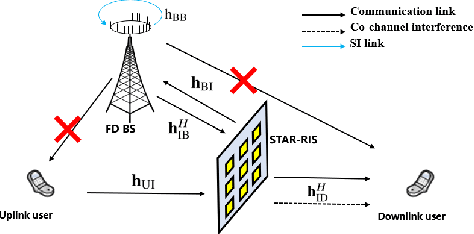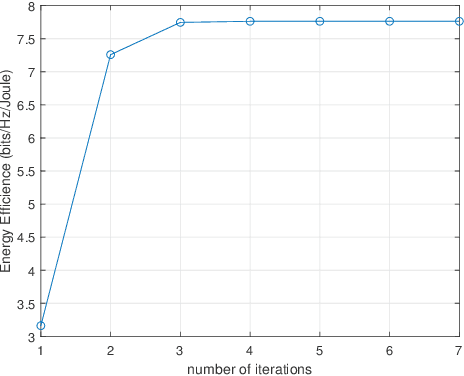Energy Efficiency Maximization of Simultaneous Transmission and Reflection RIS Assisted Full-Duplex Communications
Paper and Code
Mar 14, 2022

This work studies the effectiveness of a novel simultaneous transmission and reflection reconfigurable intelligent surface (STAR-RIS) aided Full-Duplex (FD) communication system. We aim to maximize the energy efficiency by jointly optimizing the transmit power and passive beamforming at the STAR-RIS. We propose an efficient algorithm to optimize them iteratively under the alternating optimization framework. The successive convex approximation (SCA) and Dinkelbach's method are used to solve the power optimization subproblem. The penalty-based method is used to design passive beamforming at the STAR-RIS. Numerical results verify the convergence and effectiveness of the proposed algorithm, and further reveal the benifits of the combining of the STAR-RIS and FD communication compared to benchmarks.
 Add to Chrome
Add to Chrome Add to Firefox
Add to Firefox Add to Edge
Add to Edge